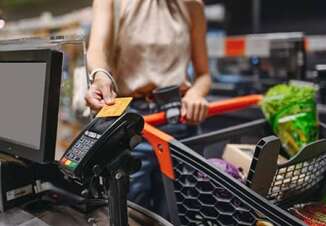The content on this page is accurate as of the posting date; however, some of the offers mentioned may have expired.

Rising inflation may have already impacted your household monthly budget. You may have run out of money faster than ever over the last few months, even though your spendings haven't changed. Experts note that people spend more today than pre-pandemic and that they tend to overspend in order to buy groceries.
The most affected products are considered meat, poultry, eggs, and dairy products. Those were hit the hardest by inflation. The price increases affect lower-income families more as groceries are a necessary expense and those families spend a large portion of their budgets on food.
Luckily, there still are ways to save of groceries and lower our food bill. Following useful tips and pieces of advice, you can save up to 10% a year on grocery purchases. If you add here cash back credit cards, your savings may be even higher. The key to saving the maximum is planning in advance and shopping strategically.
Here are some useful ways to save money on groceries:
- Rebate apps, loyalty programs, credit cards: many grocery stores have loyalty programs that are free to join. As a member, you can get access to member-only discounts, sales events, free delivery, gas savings, and learn about in-store promotions. If you combine your loyalty membership with a rewards credit card, you will be able to save twice: as a loyalty member and as a cardmember. There are special grocery rewards credit cards, or you can use a cash back credit card to earn rewards. Rebate apps or cash back platforms offer cash back or rebate deals at participating retailers.
- Grocery coupons: it may sound old-fashioned, but it still works. As many things these days, coupons went digital, and you can use online and mobile coupons to save money at the store. But be careful with coupons - use them only for items you were already planning to buy, otherwise you risk overspending.
- Buy essentials in bulk: Usually, buying household products in bulk at warehouse stores like Costco or Sam's Club, is cheaper and you can grab special deals if you are a member. Plus, buying in bulk helps you save on gas as you will make fewer trips to the grocery store.
- Make a shopping list, plan ahead, and reduce waste: having a list and sticking to it will help you avoid overspending. It's well known that impulse purchases may slowly eat away at your wallet. Also keep your pantry and refrigerator organized to make sure you do not buy what you do not need.
- Swap out brand names for generic and buy seasonal foods: A name-brand product often mean higher price. Generic brands or store brands are often of the same high quality as their pricier competitors, but cheaper. That's because they are simply less advertised. And in-season fresh vegetables and fruits will always cost less.
- Don't go shopping when you are hungry: the simple truth is that we end up spending more when we go to the grocery store on an empty stomach.
There are many ways to cut your monthly grocery bill - from getting organized to planning - and the tips above are some of the many. If you make some small changes to shopping habits, you may see big positive changes in your grocery budget.






